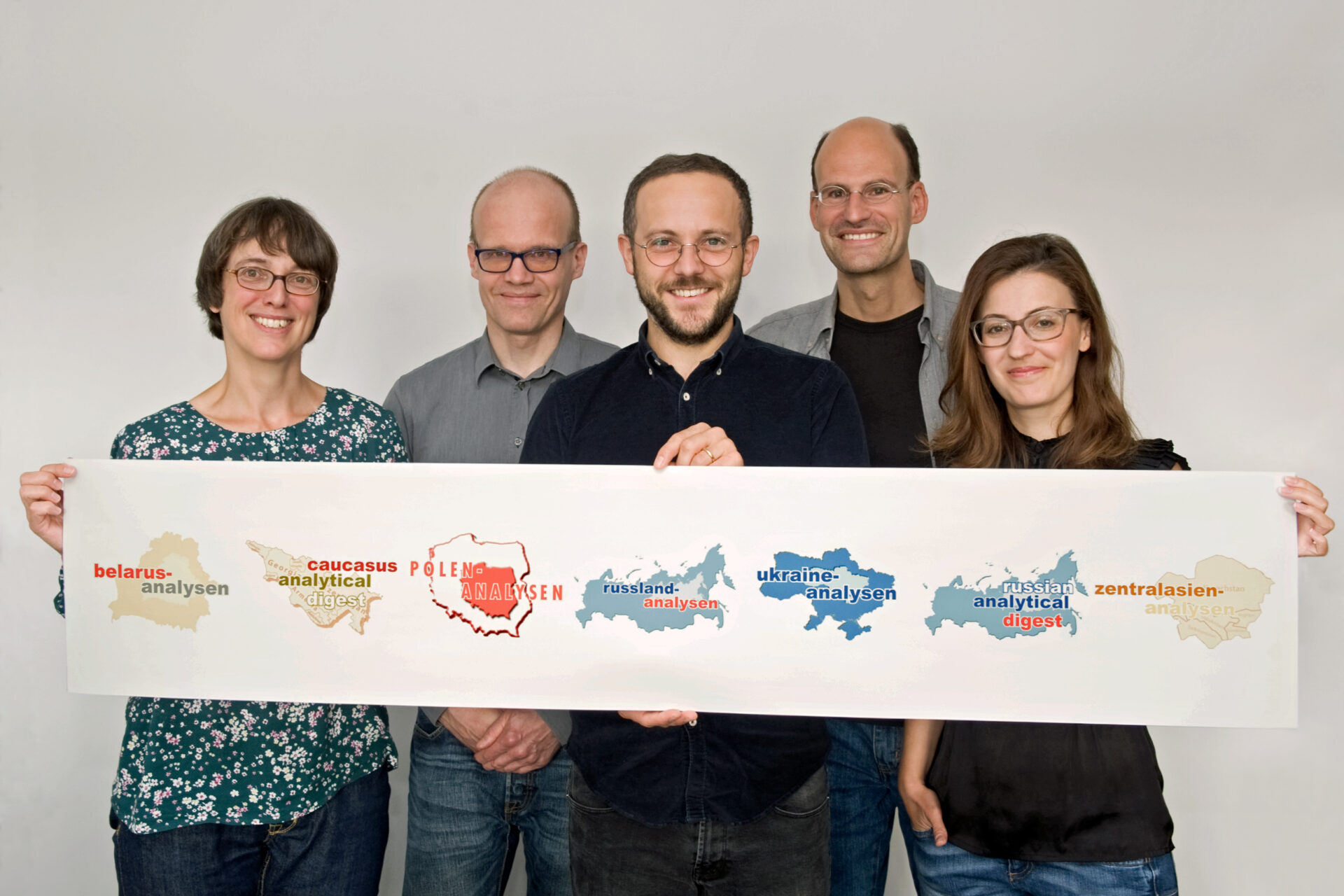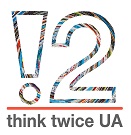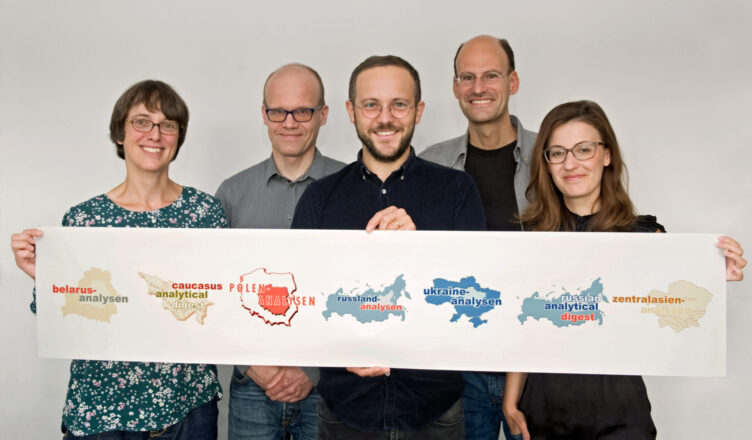
The Ukraine-Analysen is a journal offering a unique analysis on developments in Ukraine. The journal began in 2006 and is published 17 times a year, features articles from leading Ukrainian, German, and international experts. The editor of the journal, Dr. Eduard Klein, discussed with us how it was established, what the main goals were, and how they work from the inside. We also asked Eduard to share with us his thoughts on researchers’ work in Germany and Ukraine, the differences between two countries in terms of the works of think tanks, and how is it to be a researcher in the world of trending populism and rapid-reading.
What, in your opinion, does mean to be a researcher in Germany. Why did you decide to become a researcher?
For me, research is directly connected with academic freedom: the possibility to teach, communicate and study without fearing repressions, job loss etc. Working on the post-Soviet region, where academic freedom is partially restricted, I am aware that this cannot be taken for granted. I really appreciate that I have the opportunity to do what I really like, and to work on a topic (or, rather, region), I am really interested in.
However, this freedom is only one side of the coin, as, on the other, it is not easy to become a researcher and academic careers have many uncertainties: workplaces are scarce, competition is tough, and contracts are often temporary. But, once you get there, I think, working as a researcher in Germany is a very fulfilling job: you are (rather) free of economic burdens or political interference and usually have good working conditions.
Personally, I am a typical “Arbeiterkind”, how we call it in Germany: I have a non-academic family background, and I was the first person in my family who went to university. Plus, I’m from a migrant background, having moved from the former Soviet Union to West-Germany at the age of six – two “stigmas”, making it rather unlikely for a university career in Germany. Nevertheless, once I was accepted at university, I was really lucky to have a great supervisor, who supported me during my studies and my M.A. thesis, and afterward gave the impetus to think about a PhD – something, I had never even dreamed of before. I wrote my PhD thesis about corruption in higher education institutions in Russia and Ukraine. Then I received the opportunity to work as an advisor for a German MP in the Bundestag, whose focus was on Russia and Ukraine. I really liked the job and I learned a lot from my great colleagues and “my” MP. However, being used to working rather independently, I decided to return to academia, when I had the chance. Therefore, two years ago I left politics to join my alma mater again, the Research Centre for East European Studies at the University of Bremen, where I work as an editor for “Ukraine-Analysen” – and where, by the way, I had done my first internship as a student 15 years ago. A choice with a long-lasting influence, it seems…
Why did you choose Ukraine and Russia as your area of interest?
I studied East European Cultural Studies and Sociology in Bremen and St. Petersburg. Actually, this combination had not been my first choice – I had planned to study Political Science and Sociology, a combination that could not be offered at the universities that appealed to me. I then decided to study East European Cultural Studies, because it offered me the opportunity to re-learn Russian – a language I had spoken during my early childhood in Kazakhstan and in Ukraine, but which I completely forgot after moving to Germany in early 1989. While during my studies my focus was primarily on Russia, in recent years – particularly since the events of Maidan – it shifted more and more towards Ukraine.
How do researchers find their niche, or gain credibility in an expert environment?
I think, the main difficulty is to find a balance between specific or “niche” expertise and general knowledge, as generally, you need both: To be competent in the details of your subject on the one hand; but on the other, you need to contextualize this knowledge in order to be able to communicate it to a broader audience. I do not think that there exists something as the “right” or “wrong” way to find your niche. But what I can say from my own experience is that it is easier to find your own niche, when you are really passionate about a specific topic.
What is the difference between German and Ukrainian researchers (think tanks) and their ways of working?
Working now for more than 10 years in different positions and different institutions – in politics, NGOs, and academia – with Ukrainian (and Russian) counterparts, now as an editor whose daily working routine is to collect and edit analytic articles (mostly) from Ukrainian and German colleagues, I think, one of the main differences is maybe a cliché, but somewhat true: German colleagues are usually more reliable in such aspects as deadlines, guidelines, etc. I have to kindly “remind” Ukrainian colleagues of those “banalities” more often than German ones, who rather stick to our agreements. But I would be careful to attribute this difference to some rather unspecific “cultural” habits – rather, such differences might result from differing working conditions, which tend to be more uncertain/difficult in Ukraine, constraining the time and efforts Ukrainian authors have to work on articles.
Also, communicating with Ukrainian institutions via Email is often cumbersome – always better to contact institutions by phone or colleagues personally via mail or even Facebook. In Germany, however, I would barely contact a scholar via Facebook as this is not usual.
How do you see the future of think tanks and research institutions in your country and in the world, taking into account any trends like populism, or rapid-reading?
The corona-pandemic has shown how important solid, fact-based research is: Without a vaccine against Covid-19, our established way-of-life will become substantially disrupted. And even if we slowly learn to adapt to the “new normal”, the only long-term solution will be a vaccine – that’s just one example, why we obviously need science and research.
Here in Germany, the leading expert during the first wave of the pandemic achieved cult status – and, simultaneously, death threats. This illustrates the increasing drift we observe not only in Germany: between a common sense on the one hand, which relies on the expertise provided by research, think tanks etc. in order to cope with the growing complexity in a globalized world. And on the other hand, increasingly popular groups of “conspiracy theorists”, or however you want to call them, who seem to be “resistant” to scientific advice or analysis – even the contrary: The more facts you deliver, the more they are entrenched behind their conspiracies, myths etc. “Haters gonna hate”, as a popular saying goes. These groups seem immune to scientific expertise.
But still, the large majority is more than ever open to and in need of expertise in the form of independent, bipartisan and solid explanations, analysis, illustrations, etc. provided by universities, NGOs, think tanks and respectable media. In our complex world, their role is (and will be) to break down the complexities – which is not always an easy task.
You are the editor of Ukraine-Analysen, one of the most important journals on Ukraine in Germany. Could you please describe when Ukraine-Analysen was established, and why that happened?
The Ukraine-Analysen was established in 2006 by the Research Centre for East European Studies at the University of Bremen (FSO) and the German Association for East European Studies (DGO), when, after the Orange Revolution, Ukraine was at crossroads between the EU and Russia. The main aim, as stated by the editors of the first issue, was to help the German public to assess the developments in the country: “The Ukraine-Analysen are intended to make the knowledge that scientific research has in abundance available to politics, business, the media and the interested public.” So, basically, this is the function I described in the question above: Using scientific knowledge, breaking it down so that everyone can understand it, and making it publicly available. The Ukraine-Analysen borrowed this concept from its “sister publication” Russland-Analysen, which started in 2003 with the same intention and quickly gained a lot of recognition.
Today, I think that Ukraine-Analysen is considered an essential and reliable source of information on Ukraine. It is read by students, scholars, journalists, politicians, and the business community interested in Ukraine. When, last year in Kyiv, I unexpectedly met some German students doing an internship there, and they told me that they had written most of their term papers based on our Ukraine-Analysen-series (instead copy-pasting Wikipedia articles), I felt somewhat proud of the work my colleagues and I are doing.
What is the main goal of the publications, and what current Ukrainian issues do you cover?
I think the main goal has not changed since 2006, even if nowadays there is a catchy new phrase for what we do: knowledge transfer. We are trying to bring (academic) knowledge from its niche to a broader readership, as articles in scientific journals are rather complex and their access usually is restricted and costly. In contrast, our bi-monthly publication is free of charge and our articles are written in an understandable language to reach the widest possible readership. Most of our issues cover political issues, during the last year, for example, the presidential and parliamentary elections. This year many analyses focused on the implications of the Covid-19 pandemic.
How do you choose materials? What main challenges are you confronted with?
Principally, there are two ways: Either an author contacts me with a proposal, sometimes with a finished draft. Usually, these authors have some fresh research findings to share; sometimes the articles have been published in another language before. Depending on the quality and the relevance of the article, I decide whether we publish it or not. Sometimes, if I am not entirely sure about the quality of an article or the potential of an idea, I discuss it with my colleagues, our scientific board, and the author.
Most articles, however, stem from my own ideas: I closely follow the developments in Ukraine – I write the chronicle, which is an essential component of the Ukraine-Analysen – and thus have a broad overview of what is happening in the country. If I identify a topic that might be of interest for our readers, I try to find experts for this topic at research institutions, think tanks or NGOs. Provided they are available for a contribution, I discuss with them the idea and the direction/content of the article.
Apart from the “large/important” topics – elections, Donbas, reforms etc. – I always try to include some rather “invisible” ones: for example, last year we had an interesting analysis on surrogacy, a topic, widely neglected – until suddenly this spring the Covid-pandemic shed light on the situation of surrogate mothers in Ukraine and we suddenly noticed many retrievals for this article in our archive.
Whichever topic I chose: I really enjoy my editorial freedom – which is a great responsibility, too, knowing that to some extent I am a “gate-keeper”, shaping the discourse on Ukraine in Germany. But the independence of our series allows me to choose those topics I believe are important to better understand what is going on in Ukraine.
Concerning the challenges, I think that working with authors from academia can be a great benefit – many scholars are eloquent, trained in writing and possess huge knowledge I can learn from. But on the other hand, they are not always well-trained in presenting their work to a broader readership, writing as if the article was meant for an academic audience. My job then is to “translate” the text in a readable und understandable language.
Personally, I find it difficult if people agree to write an article in due time – usually, they have a few weeks time – but then don’t deliver. Due to our bi-monthly publication rhythm, I run into problems, when I do not receive articles timely.
What are your future plans in regard to the Ukraine-Analysen? Where do you see a possible field of cooperation between the two countries in this regard?
The Ukraine-Analysen is published by a consortium of five leading German (research) institutions with a focus on Eastern Europe: Apart from the founding institutions FSO and DGO, these are the Centre for East European and International Studies in Berlin (ZOiS), the German-Polish Institute in Darmstadt, the Leibniz Institute of Agricultural Development in Transition Economies in Halle (IAMO) and the Leibniz Institute for East and Southeast European Studies (IOS) in Regensburg. Just recently, they agreed to prolong our publication, so the future of Ukraine-Analysen is safe – this is good news in those uncertain and complex times we face.
As the realization of our new website (including a better search and DOIs for better citation of articles) took a lot of time and energy, I think there will not be many changes in our format or appearance soon.
Topically, we will analyze the Ukrainian local elections in October – our new colleague Fabian Burkhardt from the IOS Regensburg, who will join me as co-editor for a few issues every year, and support us with the election analysis. Other topics that we will cover include the standard of living and poverty, the reform of the military and the development of the relations between Ukraine and Hungary.
In my daily work, I am already in contact with many Ukrainian colleagues from different institutions. However, I hope that, in the future, there will be more synergies not only between individual researchers but between institutions. Currently, with our Discuss-Data-platform (https://www.discuss-data.net/) in the pipeline, I see a great chance for further and tighter cooperation regarding the exchange of research data between Germany, Ukraine and beyond. I think that both sides could profit a lot from each other, and we are always open to new collaborations and ideas regarding potential articles.
This interview was conducted by Think Tanks Development and Research Initiative “think twice UA” in the framework of the project „German Ukrainian Researchers Network“ (GURN). The project is implemented by the Institut für Europäische Politik in cooperation with the Ilko Kucheriv Democratic Initiatives Foundation (DIF, Kyiv), New Europe Center (NEC, Kyiv) and the think tank Initiative think twice UA (Kyiv), with the support of the German Federal Foreign Office.
Photo: Harald Rehling, University of Bremen

